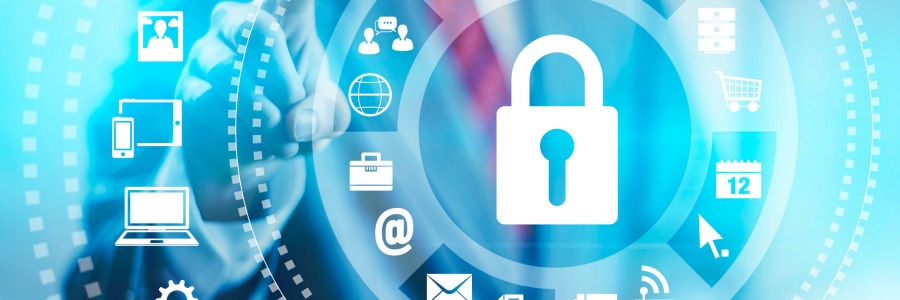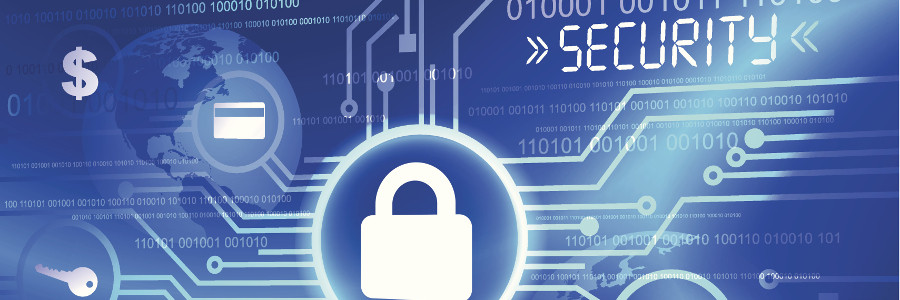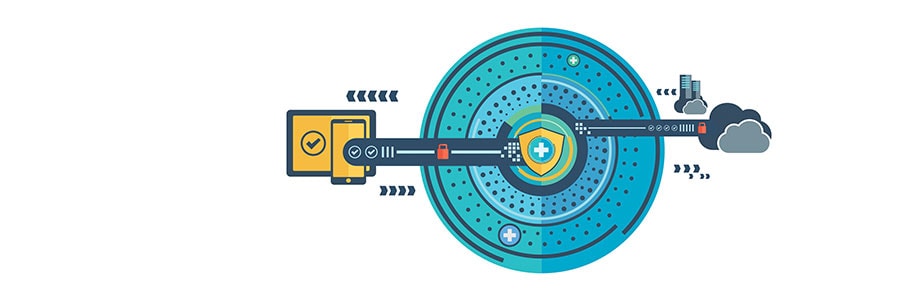Do you ever feel like your internet security is a bit lax? Maybe you don't have a password on your Wi-Fi network or you use the same one for all of your accounts. These risky behaviors can ultimately lead to a cyberattack. To mitigate this risk and improve your online security, you can follow these tips.
4 Ways to improve your online security
Why you need a VPN and how to choose the right one

Today, just installing anti-malware software and a firewall on your computer isn’t enough to keep you safe as you use the internet. Nowadays, a hacker can intercept messages sent to and from your computer and steal the data they contain. This is why you need a virtual private network (VPN).
What is a VPN?
A VPN creates a secure tunnel between your device and the websites you visit, protecting you from hackers looking to intercept your data.
Tips to keep your business data safe

Losing or compromising data can be disastrous for your business. It can lead to reputational damage, costly lawsuits, and termination of contracts, among others. And because threats to data security are always present online, it's important to implement tough security measures that will keep your business data safe 24/7. Here are some tried-and-tested methods to safeguard your corporate data.
Better internet security: Easy as 1, 2, 3

The internet is not such a bad place to be in — for as long as website owners do their share in keeping it safe for their visitors. Here are three tips to do exactly just that.
Tip 1: Use HTTPS
Short for Hypertext Transfer Protocol Secure, HTTPS indicates that a website has an extra layer of security for its users.
Here’s why you need a VPN and how to choose one

Installing antivirus software and using strong passwords are no longer considered the bare minimum in cybersecurity. With your online activities transparent to internet service providers, third parties, and hackers alike, it’s important to keep your information secure and private by using a virtual private network (VPN). Here’s why.
Improve internet security with these easy tips
5 Tips for protecting corporate data

A data breach can happen to anyone, even to the most secure businesses or financial institutions — and cybercriminals could even attack your company’s network. How can you be sure your network is completely hacker-safe? As a business owner, you can’t afford a data breach, as it could cost you your clients and reputation.
Benefits of using a VPN

While using a virtual private network or VPN isn’t a silver bullet to online privacy threats, it still offers crucial security benefits, especially if any part of your day involves using unsecured channels such as public Wi-Fi. Given its importance, how do you pick the right one and what factors do you need to consider?
What is a VPN?
The best way to describe a VPN is as a secure tunnel between your device and destinations you visit on the internet.
5 Simple but effective cybersecurity tricks

Can you name five cybersecurity best practices? Most people can’t, and few of those who can, actually follow them. Unfortunately, cyberattacks are far too common to be lax about staying safe online. Your identity could be stolen, or even worse, you could expose private information belonging to your company’s clients.
HTTPS matters more for Chrome

HTTPS usage on the web has taken off as Chrome has evolved its security indicators. HTTPS has now become a requirement for many new browser features, and Chrome is dedicated to making it as easy as possible to set up HTTPS. Let's take a look at how.
For several years, Google has moved toward a more secure web by strongly advocating that sites adopt the Secure HyperText Transfer Protocol (HTTPS) encryption.
- 1
- 2


